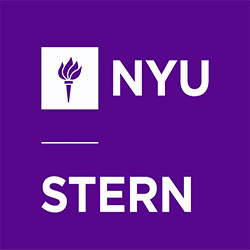It’s hard to believe the year is coming to an end. We’ve got just a couple weeks remaining to wrap up spring semester courses before we’ll emerge as the latest class of Stern MBA graduates. As you consider applying to the Tech MBA program – or if you’ve already been admitted – I will offer you some utilitarian (and quite frankly, kind of boring) advice, but advice that I hope will be as helpful to you as it has been for me.
My advice to you — prospective or incoming Stern MBA — is to make a list of knowledge, experiences, and things that you want out of your time at NYU. For me, it’s fun to look back on now, but my list was a helpful tool that provided me with strong footing when I was presented with the many diverging paths and opportunities available to students here at Stern. From classes you want to take, knowledge gaps you want to plug, or extracurricular and professional experiences you want to have, going through this exercise helped me set goals and provided structure to ensure I was making the most of my time on campus. Amidst the new and promising opportunities available to me, referring back to my list was a helpful way to check in with myself on whether or not I was staying true to my reasons for coming back to business school. In many cases, it helped me recalibrate my focus, and in others, it allowed me to reflect and sometimes change my mind, indicating both personal and professional growth, which is what pursuing graduate education is all about.
To give you an example of my list in action, it was a few months ago in October 2019 and Stern had entered the course selection period for the upcoming spring. As I went through the course catalog in search of electives I wanted to take, I identified more classes than I had room for in my schedule. I conducted a ton of research through talking with other students, reviewing syllabi, and reading course reviews, but to no avail on any narrowing decisions. I was considering an intense finance class, higher-level strategy courses, a pricing strategy class, a few interesting entertainment and media courses (just for fun), and more. I clearly couldn’t take all of them, so I decided to refer back to the list I created prior to arriving on campus because I remembered that it included knowledge gaps I wanted to fill through my Stern coursework.
Upon review, one of the items on that list was to learn strategies for pricing a product—in my previous work experiences I had never priced a product or service from scratch, and I knew there were many strategies and techniques to do so. My list became the tiebreaker in my elective selection, and I couldn’t be happier with the decision. I have learned so much while taking the pricing class in which I enrolled, well beyond anything I could have initially imagined. The professor, Masakazu Ishihara, is amazing not only because he’s an expert in his field, but also because despite our classes going remote, he’s been incredibly dedicated to making each class session engaging and interactive. Also, the classwork and projects have been some of the most practical applications of the concepts we’ve learned that can be used across many industries. It’s become my favorite course this semester, and I feel well equipped to re-enter the workforce and apply this new knowledge.
The point I’m trying to make here is not to tell you to take a pricing class or model your list after mine, since that might not make sense in the context of your reasons for pursuing your MBA. But whether your list includes traveling to a new country, working with one of Stern’s professors, meeting a business leader at a campus event, or simply just speaking up more frequently in class, I think you’ll find that creating this list is a helpful exercise in keeping you on track toward your goals—it’s helped me achieve mine, and it’s a reassuring feeling in the last few weeks wrapping up my great experience here at Stern.

